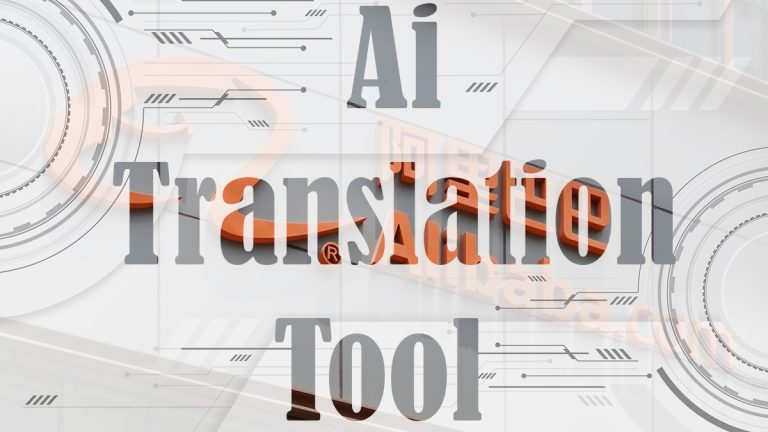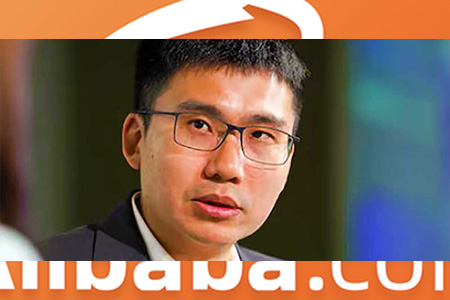
Alibaba Claims AI Translation Tool
In a bid to reshape the AI-powered translation service, Alibaba International has announced an upgraded version of its translation tool. The e-commerce giant of China claims that this new service outperforms key competitors like Google, DeepL, and OpenAI’s ChatGPT. By applying advanced technology and crafting it to meet specific needs in global commerce, this tool can achieve the leading role in the multilingual e-commerce market.
The Marco MT Model: Pioneer of Innovative Technology
At the heart of this new translation service is Marco MT, an AI model that Alibaba says has beaten its competitors via the Flores translation benchmark framework. This is a quantum jump over its predecessor launched last year. Unlike the earlier version, the improved tool uses large language models (LLMs) to interpret not only nuances in linguistic expressions but also other contextual elements such as cultural references and jargons native to particular industries.

Kaifu Zhang, Vice President of Alibaba International Digital Commerce Group and head of its AI initiative, articulated this technology for a business-driven rationale:
“The idea is that we want this AI tool to help the bottom line of the merchants, because if the merchants are doing well, the platform will be doing well.
This focus on practicality highlights how Alibaba is using high-tech to change business outcomes for international merchants dependent on seamless cross-border communication.
Wide Language Support for Global Reach
Alibaba’s translation tool supports 15 languages, making it appealing for a wide range of international markets. The list comprises the following languages:
- Arabic
- Chinese
- Dutch
- English
- French
- German
- Italian
- Japanese
- Korean
- Polish
- Portuguese
- Russian
- Spanish
- Turkish
- Ukrainian
The coverage of such a wide array of languages makes Alibaba’s translation tool omnipotent and gives it immense strength to shoulder the various linguistic demands of the global e-commerce platform with ease. Moreover, this will be significantly crucial in tapping into the desires of merchants to extend their regional marketplace and sales.
Real-World Impact and Adoption
The AI-powered Alibaba translation tool has, within the year of its launch, gone ahead to make quite an impact. According to the company, over 100 million product listings have been translated using the tool. Such extensive use underlines the usability and efficiency of the AI in supporting businesses in their effort to overcome language barriers and thus reach far more consumers.
The tool can return contextually correct translations-one of its major benefits. Instead of just translating the words in a sentence, which often produces confusing or objectionable results, it captures the intent of colloquial or industry-specific terms. Zhang gave the example of the AI being able to take a casual Chinese description of slippers and provide the English translation which would retain the product’s appeal, instead of providing a stiff, formal version of it.
This accuracy in translation can have an effect on consumer behavior in terms of better relating the product description to be more trustworthy, hence improving purchase likelihood.
Strategic Importance in International Expansion
The announcement and release of this new and improved translation tool also come quite aptly within a broader strategic context for Alibaba, which is to further shore up its international operations. As Chinese firms increasingly look abroad for growth opportunities, any such tools that can help smoothen cross-border communication become particularly worthwhile.
International business units of Alibaba like AliExpress and Lazada have posted tremendous growth. International sales for Alibaba grew by 32% year-on-year during the second quarter to $4.03 billion, which also ended in June. This is particularly impressive because international revenue offsets the 1% decline of Alibaba’s domestic business, including its key platforms Taobao and Tmall, over the period in question.
Competition is heating up in the global e-commerce market, to which PDD Holdings’ Temu, Shein, and ByteDance’s TikTok have joined. The investment by Alibaba in AI-powered translation technology confirms it is ensuring the lead position in the race for international share of the market.
Implications for Global Commerce in the Future
The impact brought about by Alibaba’s translation tool goes further than just the translation of language. Zhang also said that big shopping events such as the “Double 11” festival, better known as Singles’ Day, the annual shopping extravaganza hosted by Alibaba, will be further enhanced by the AI. It means that with Alibaba ensuring product listings, descriptions, and promotional materials are accurately translated across a number of languages, large-scale events would see increased consumer engagement in sales.
Furthermore, the tool will keep generating value for merchants and especially those who want to go international. Alibaba hasn’t announced how much the new version of the tool will cost, only that it will “most likely be part of service bundles targeting businesses that want to go global.”

A New Frontier in AI-Driven Translation
As Alibaba continues with heavy investments in AI-powered solutions, it certainly fancies technology as a key driver in its international expansion. Indeed, this launch of a first-rate translation tool underlines Alibaba‘s commitment to leveraging the latest innovations to meet the increasing requirements of global commerce.
While Google, ChatGPT, and DeepL are formidable competitors, Alibaba‘s translation tool has a strong possibility of being a game-changer, underpinned by the power of the Marco MT model. The accuracy of context-sensitive translations across an immense breadth of languages, along with strategic emphasis on business outcomes, will make this offering uniquely positioned in the market.
In this ever-changing world of e-commerce across borders, Alibaba‘s translation tool is more than just a facilitator of communication; it’s changing how business gets done in a decidedly interconnected, multilingual world.
The international arm of Alibaba Group has just announced an updated version of its AI-powered translation tool, named Marco MT, which outperforms competitors such as Google, DeepL, and ChatGPT. According to a report by CNBC, Alibaba has reported that the upgraded tool ensures higher quality translations compared with other competing tools. In this way, the company will use leading technology to strengthen its leading position in the world in AI and machine learning. With high accuracy and contextual understanding, Marco MT intends to fulfill the demands of many industries, hence becoming one of the forerunners in this competitive market for AI translations.
Read Other Ai News